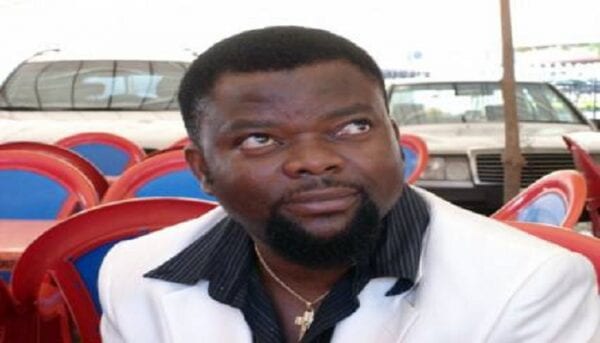Is Sunny Ofehe a terrorist or a peace activist? The question before a court in the Netherlands will remain unanswered for some time. On Monday, his trial was postponed once more, this time to allow for further investigation.
It is to be hoped that when the trial resumes, the proceedings will finally shed light on why the man who calls himself a peace activist was charged with conspiring to commit terrorists acts in Nigeria’s oil-producing region, the Niger Delta.
The packed public tribunal sits in silence, trying to disentangle the subtle legal battle going on. Most of the 45 people or so are Nigerian men who say they came to offer moral support to their fellow countryman. Mrs Dorothy Ofehe is present too, as at all of her husband’s public appearances. Dutch environmental activists have come, and a Dutch socialist MP who helped put the Niger Delta on the parliamentary agenda.
From the press, two prominent dailies are represented. A young filmmaker is following Ofehe and wants to draw parallels between him and the Ogoni activist Ken Saro-Wiwa who was executed by a Nigerian military regime. The accused, wearing a shiny black suit and stylish, polished shoes, listens attentively to his lawyers’ plea through an interpreter sitting next to him.
Shaky evidence
The lawyers say that unfounded terrorism accusations based on shaky evidence have tarnished Ofehe’s reputation. The negative publicity has also made it impossible for him to gather funding for this Hope for the Niger Delta campaign. Most notably, the reputable Oxfam Novib non-governmental organisation, in line with international guidelines, will not work with him as long as he remains accused of terrorism.
But not all Ofehe’s funders have reacted in this way, RNW has learnt. The catholic charity Cordaid has continued supporting him with funding and expertise, despite the accusations. A spokesperson for the charity told RNW that they have helped him maintain his office so that he can discuss delicate issues privately, away from his home and the ears of his four sons. Cordaid has also hired a consultant to help him reinforce and develop a strategy for his foundation. “We simply believe that he is innocent until proven guilty,” the Cordaid spokesperson said.
In response, the Public Prosecutor says that “publicity is a fact” one has to live with and should not be taken into consideration. She adds that she does not see the need to hear more witnesses, as requested by the defence.
Ofehe is reminded that this is a procedural hearing to determine whether further investigation is necessary.
“Every day of my life I have been in the court of public opinion defending myself since my arrest…..my character has been denigrated and maligned, the list of errors in this case is long and rich. What you see is bad police work and slanted prosecution, but I know this court will guarantee fairness.”
Looking at him straight in the eyes, the main judge tries to make him realize that calling more witnesses to the stand will only prolong the process Ofehe says is taking too long. The judge calls a break for deliberation.
Deeper investigation
After the 45 minute wait, the pubic tribune quiets down as it tries to decipher the ruling read in difficult Dutch legalese. The judges, so it seems, will honour the defence lawyers’ plea for deeper investigation into the validity of the accusations.
The judges want a few more witnesses to be heard, including the man in Nigeria with whom Mr Ofehe allegedly plotted to blow up pipelines in the Niger Delta in three tapped telephone calls- the basis for the terrorism accusation, according to the lawyers.
This and other hearings will be conducted by an investigating judge in a separate session. In the Dutch legal system, the investigating or examining magistrate is independent from the Public Prosecutor and can question witnesses and look for evidence. This procedure is seen as less time consuming than a regular court hearing.
When those people have been heard and the trial resumes, the judges then want to hear the officer who led the investigation into terrorism charges against the accused.
The trial is suspended indefinitely – the additional hearings will take time – but Ofehe and his lawyers feel that they have won a small victory.































